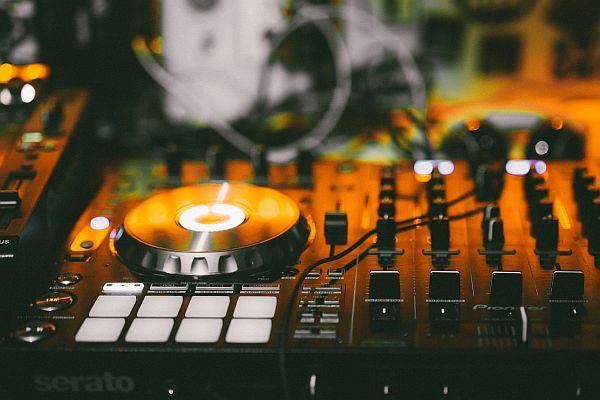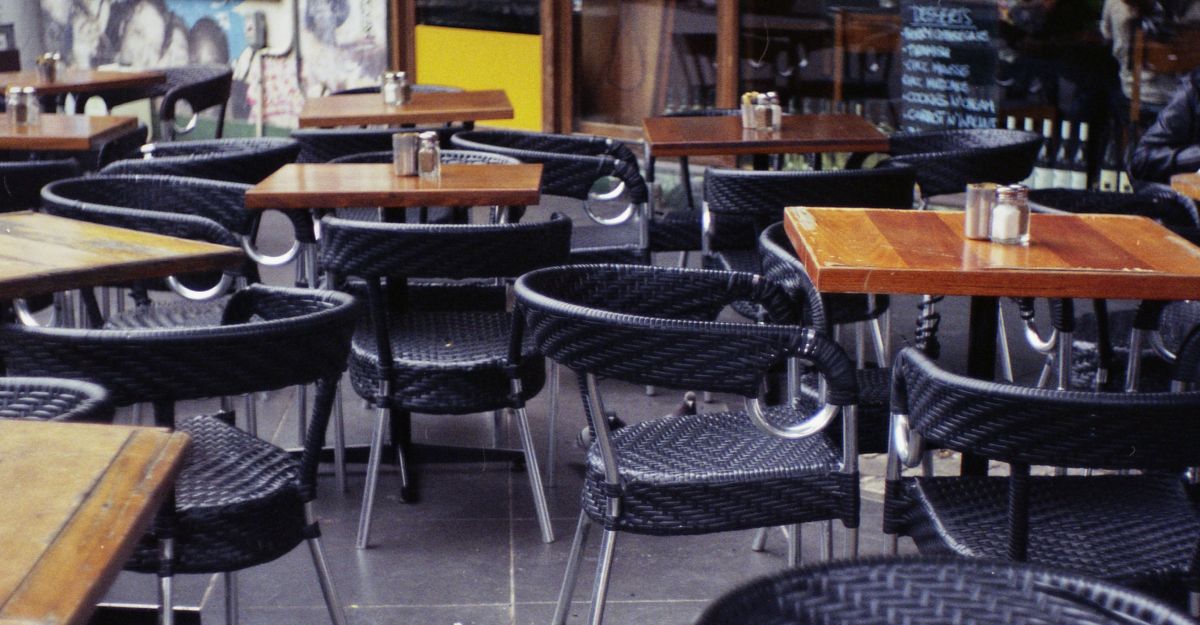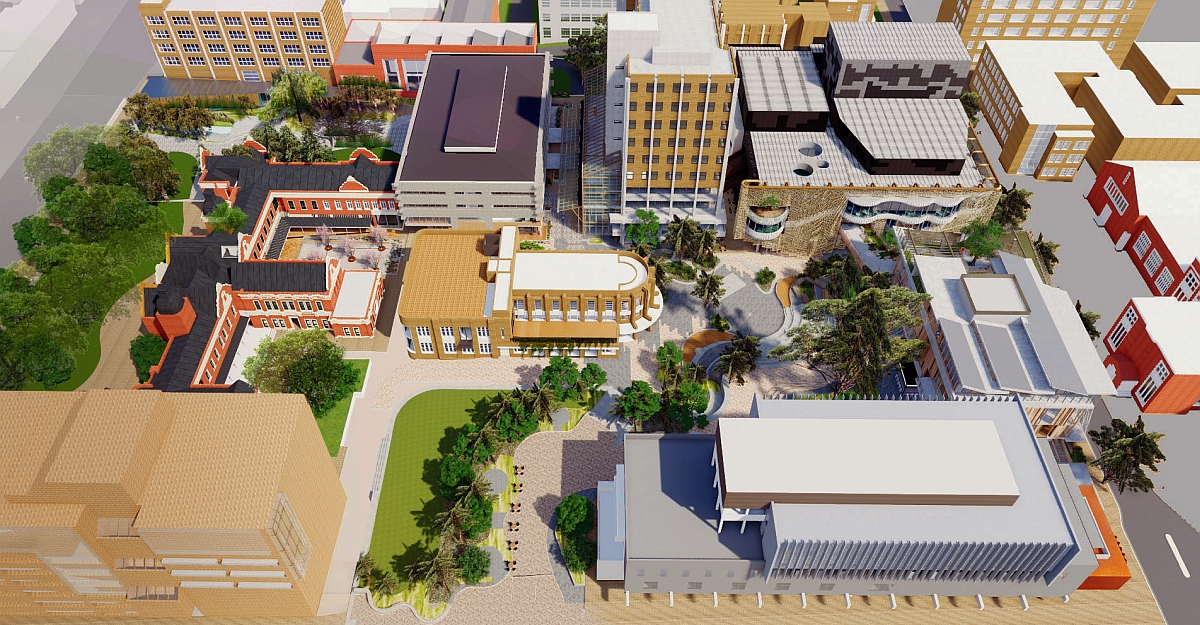Last March, a handful of prominent Melbourne nightclubs were called out for hosting events with all-male lineups. It’s a tale as old as time itself, but it’s also 2021. This shouldn’t be happening.
In an Instagram story, Melbourne based DJ Floss Dogg listed Revolver and Brown Alley as among those implicated in a ‘severe increase’ in all-male lineups across Melbourne’s nightclub scene. She said in the post:
I’ve also noticed that you guys are happy to plaster women dancing in pretty little dresses across your socials for marketing purposes, but you’re not willing to have that same kind of representation behind the decks.
In a small, tight-knit, supposedly progressive community, all-male, all-white lineups are still getting the green light, with little to no oversight or accountability from those with the power to make change.
In recent years, as increasingly more of our social lives and activism have been relegated to online spaces, it’s been easy to succumb to social media’s confirmation bias and forget from time to time that we live in a white supremacist patriarchy. The systems in this country are not built to uplift women nor people of colour, and that goes for the arts and culture industries as well.
Despite all of the efforts to amplify women and gender non-conforming artists in recent years, whether it be from grassroots activism, advocacy initiatives like the WIP project or more mainstream efforts like the Australian Women in Music Awards, Melbourne’s best clubs are still booking all-male lineups amidst the current post-pandemic partying boom.
Despite the fact that Melbourne continues to capitalise on its ‘diversity’ and ‘multiculturalism’, the majority of the people at the top – the club and venue owners, bookers, agents and label heads – are (overwhelmingly white) men. And despite all of the performative allyship and online activism during the peak of the Black Lives Matter (BLM) movement last year, RnB nights are being held in Melbourne, with organisers excited to announce their all-white lineups.
Tinika Pasinetti, a Melbourne-based DJ, recently called out an ‘early 2000s’ RnB party for Blackfishing. The club night, held at a Fitzroy bar, made use of telling colloquialisms, slang and images of rappers Lil’ Kim and Sisqo on their Instagram feeds, all the while emphasising tired and offensive cliches, such as the fact there would be chicken and waffles.
‘[They] popped up on my Instagram feed and I thought, ‘dear lord, here we go again’,’ Pasinetti says.
Since becoming a DJ myself and having BIPOC friends, I noticed how Melbourne offered a plethora of hip hop events but how they necessarily were not for us. There’s nowhere we could go and feel safe and not triggered by white and non-Black people, who use Blackness and Black events as an aesthetic.
Amongst the POC community we are tired of being underrepresented and overlooked. This is the perfect example, an event that is made for white people but centred around Black culture.
When Pasinetti politely questioned the all-white lineup in a comment on the organiser’s Instagram post, she was met with a disheartening response. She says:
They practically gaslit me. They made it seem I was bitter and wanting a spot on the lineup. I was told that racial discrimination would not be tolerated – lol – at the event and that the venue was picked for its ties to the LGBTQIA+ scene… it’s clear that [the venue] was really picked for the Y2K aesthetic.
This was all lacking accountability, a simple ‘oh yeah, you’re right, we will do better’ was all that was needed. For a group so submerged in Black culture, I was surprised they wouldn’t be more careful to not embarrass themselves in the handling of the situation.
Accountability is sorely needed if we are going to see any change. Everyone has a role to play in calling out bad behaviour when they see it, and this especially goes for lineups – one of the most visible forms of discrimination when it comes to the live music scene. Everyone involved, from the punters to fellow artists, have a duty to check out who else is billed. How many women are on? Is everyone white? We should be thinking critically about the types of events we choose to support.
Too often, the burden of calling out racist practices is left to Black people, especially Black women. Melbourne based singer and songwriter Claddy has been calling out the industry for years. As she told me:
We – Black folks – have been screaming out for change for years and people have only just started to – half-ass – listen to us since the BLM movement in June, when white people woke up to the fact that racism still exists. It’s not good enough, especially as we created this music, and white people are once again dominating – profiting off our creations unapologetically.
Melbourne’s music scene operates under a delusion, promoting and performing ‘inclusivity’, ‘diversity’ and ‘safe spaces’ at its events. While it’s good to see such concepts being accepted as an industry norm, these overused, tired terms are all too often weaponised against the people who take it upon themselves to speak up.
‘We always have diversity in mind at our events, whether it’s being gender equal or supporting POC’; ‘If you would like to point us in the right direction with some female and POC contacts …’; ‘We make every effort with our curation of our nights to be inclusive and diverse, if you have an issue with [the] percentage of POC, that’s something we completely respect…’, these are real responses to Floss Dogg’s initial post that circulated on Instagram after she called the industry out.
Pasinetti says that’s the essence of the problem:
Diversity/inclusion is now so overdone, obvious, performative and counter-productive. I have gained more traction in my career since BLM than ever and it pains me to admit that it’s probably due to being a diversity hire! I’m Black, gay and a cis woman so I really tick all the boxes.
We need to rethink what safe, inclusive and diverse actually mean, and in the context of a lineup that is 75 per cent male and 100 per cent white, we need to reconsider. Who is it safe for? Who is being included? Who is profiting off whose labour here? Claddy continues:
We need us, Black folks, Black women and women, at the top – meaning in the board rooms, working with or above, not under, these white cis-het male bookers. We aren’t getting paid for our labour, people expect us to relive our trauma for free whilst they profit off it.
While this issue is much larger than Melbourne, and the figures are disheartening nation-wide, the power of a small community is that we can push for serious change. We don’t need to be asking Black women for advice – there are countless women and non-binary DJs, producers and tech artists in this city (and a free database to access them, if you’re somehow lost). It doesn’t take much effort to just do better.
This is Pasinetti again:
That’s the worst part for me, getting asked ‘oh, tell me how I can help’, ‘how can we do better’, ‘tell us about some Black DJs’. It’s not our job to do the work that white people need to do! Their privilege has allowed them to walk through the world demanding the work of BIPOC and it disgusts me.
BIPOC are not in the position nor have influence to create the spaces we wish to see. It’s either surrender to being a white event organiser’s ‘diversity hire’ or be the angry Black person for speaking out.
I hope in the future Melbourne can become way more genuine, and work with us instead of using us.
For Claddy, who has been in the industry since 2007, change has been incremental, and disappointingly slow:
We haven’t seen much forward movement towards Black liberation. We continue to see us being tokenised, used for performative reasons and to fill a quota. And that’s not to say we aren’t talented enough to be more than that. That is to say that white people continue to centre themselves and their whiteness in all walks of life.
Moving forward I would like to see more Black folks and more Black women in positions of power. I would like to see more of us representing ourselves. For this to happen we require white folks to come with an open mind, and to step down from their positions of power to open up space for us to unapologetically thrive in.
Melbourne’s nightclub scene operates within a white male privilege bubble. Wryly, we’ve always called it a ‘boys club’. But the cracks are beginning to show, and they’re pitifully banal.
If we’re to see real progress in the music community, we must reconcile with the fact that the words ‘diversity’ and ‘inclusivity’ have lost all meaning. They’re nothing but disingenuous buzzwords, while ignorance is accepted as ‘good enough’.
It’s not good enough. It never was.
Image by Krys Amon



